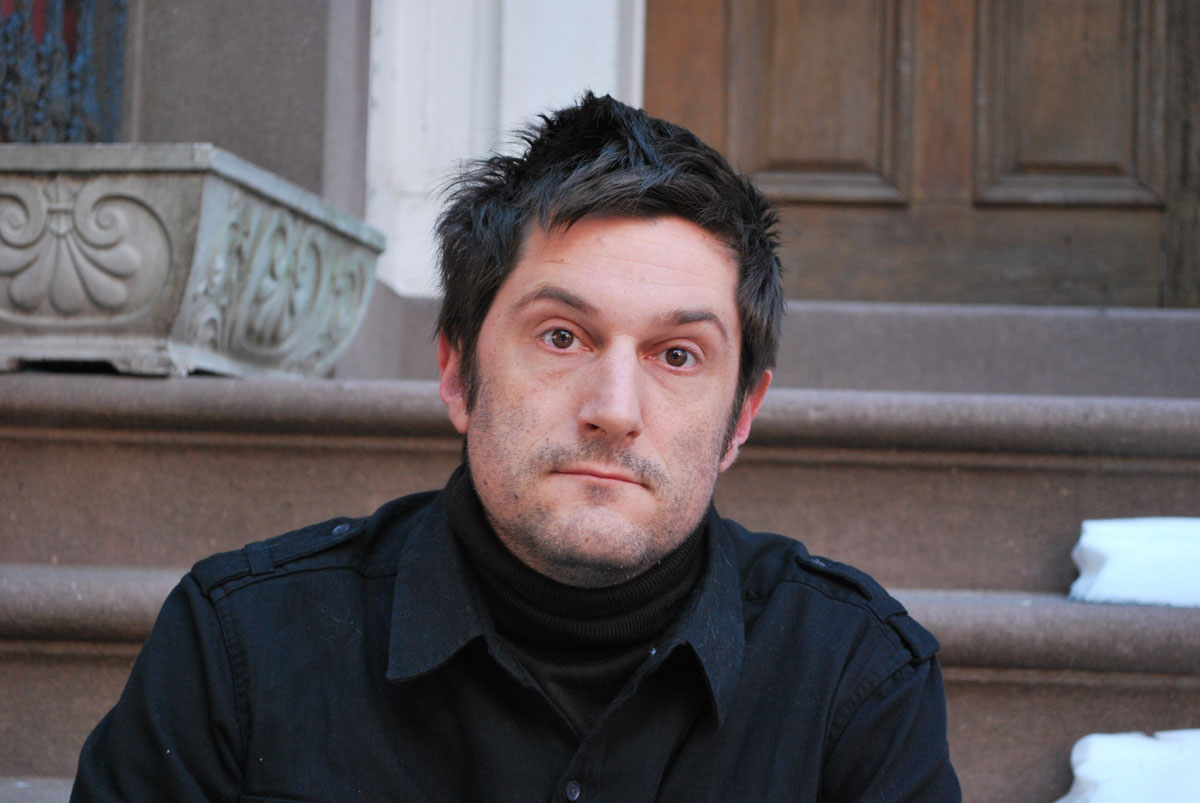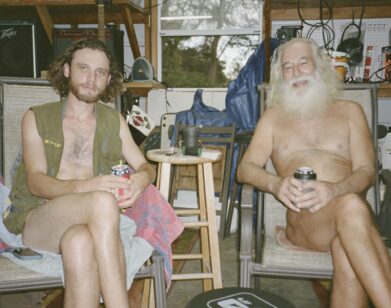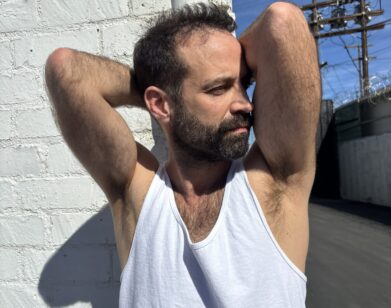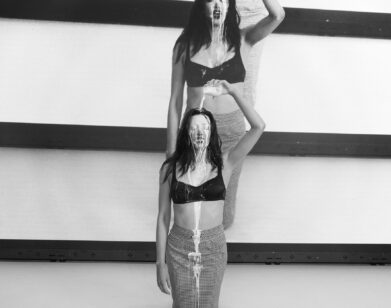Michael Showalter, Hipster Hater

MICHAEL SHOWALTER. PHOTO COURTESY OF GRAND CENTRAL PUBLISHING
Already a hero to oddballs everywhere, Michael Showalter takes on the memoir in the new book Mr. Funny Pants. The meta, scatter-logical autobiography follows Showalter’s attempt to write the next great memoir—only the book tends to detour into much funnier, if less nostalgic, territory. The comedian, best known for creating the classic TV sketch show The State and the cult classic film Wet Hot American Summer, creates his own genre: the memoir-as-sketch-comedy. We caught up with Showalter in the midst of his book tour to talk about his lack of writing habits, the pitfalls of Hollywood, and why Mondo should have won Project Runway.
MOHNEY: This is your first book… was there a book that you were inspired by when you started writing?
SHOWALTER: The book that I originally was most aiming for—as a pie-in-the-sky idea—was A Heartbreaking Work of Staggering Genius. But I quickly realized that wasn’t going to happen. The book that came after that was this book I read a billion times as a kid called Tomfoolery. It was a book that was similar to my own in that it was a random assortment of silliness. So I thought of having a book of tomfoolery, where you could just flip around and discover different things.
MOHNEY: What was it like writing a memoir versus writing a movie or TV show?
SHOWALTER: It’s just a different format that I had never worked in before. In the book, you can write what you’re thinking. So that was something I had never worked with before. In a lot of ways, I feel like this book was “me” learning about what it means to write a book. Just figuring it out. Hopefully my second book will be a real book and not a book about writing a book.
MOHNEY: I think it’s good to have a book about writing a book and the difficulties of writing.
SHOWALTER: Yeah, I bought this book many years ago called Writers on Writing. And it’s all these different writers talking about their process. And that didn’t help me at all. Because they’re all kind of like, “I’m just brilliant and have all of these habits.” I specifically remember one author saying “I get up at five o’clock in the morning and make tea and take a long walk and write for three hours.” I was like, “I can’t relate.” It should have been called Writers on How Awesome They Think They Are.
MOHNEY: You poke fun at Hollywood throughout the book. Are you still interested in working in Hollywood and making TV and films?
SHOWALTER: I’m trying to figure that out right now, quite honestly. I’m not sure. I definitely like writing and performing. I know that, for sure, [but] the movies and TV thing, I’m not sure. I don’t know. It’s a lot of work, and a lot of money gets spent. There’s definitely some disillusionment there. We’ll see what happens.
MOHNEY: I think you’re going to break a lot of hearts if you don’t do anything in film or TV anymore.
SHOWALTER: Yeah, I would like to. But I think I can live without [making] the biggest-grossing comedy of the week or year. I’ve made peace with the fact that there are a lot of people out there who aren’t interested.
MOHNEY: In the book, you mention your favorite shows involve the words “Top” and “Project.” So did you actually follow Project Runway to Lifetime?
SHOWALTER: Oh, I watch Lifetime. I thought the last season of Project Runway was one of the best seasons… Mondo is a classic character, [even among] all the seasons. He’s a standout character just from what the experience meant for him.
MOHNEY: And the winner, Gretchen, was not my favorite.
SHOWALTER: Oh God, no! She was just making hipster clothes. She was just making big jumpsuits and it was so obvious. I was shocked Mondo didn’t win. I really thought his clothes were exciting and completely original… Especially because I think the hipster thing is coming to the end. I want the hipster thing to end.
MOHNEY: I think it will. I think something might take its place, though.
SHOWALTER: Yeah, but maybe not. When I was in my twenties, there was nothing as pervasive, culturally, as being a hipster—except being a hippie. There was forty years between that—where a generation had one governing aesthetic. The problem with the hipster thing is you need to look that way or you won’t get invited to the party. That’s the problem. You want to fit in.
MOHNEY: I think the hipster thing will die out—it has to.
SHOWALTER: And the girls will push the bangs up. I don’t know if you have bangs, but they will get brushed to the side. Eventually the bangs will have to get brushed to the side.






